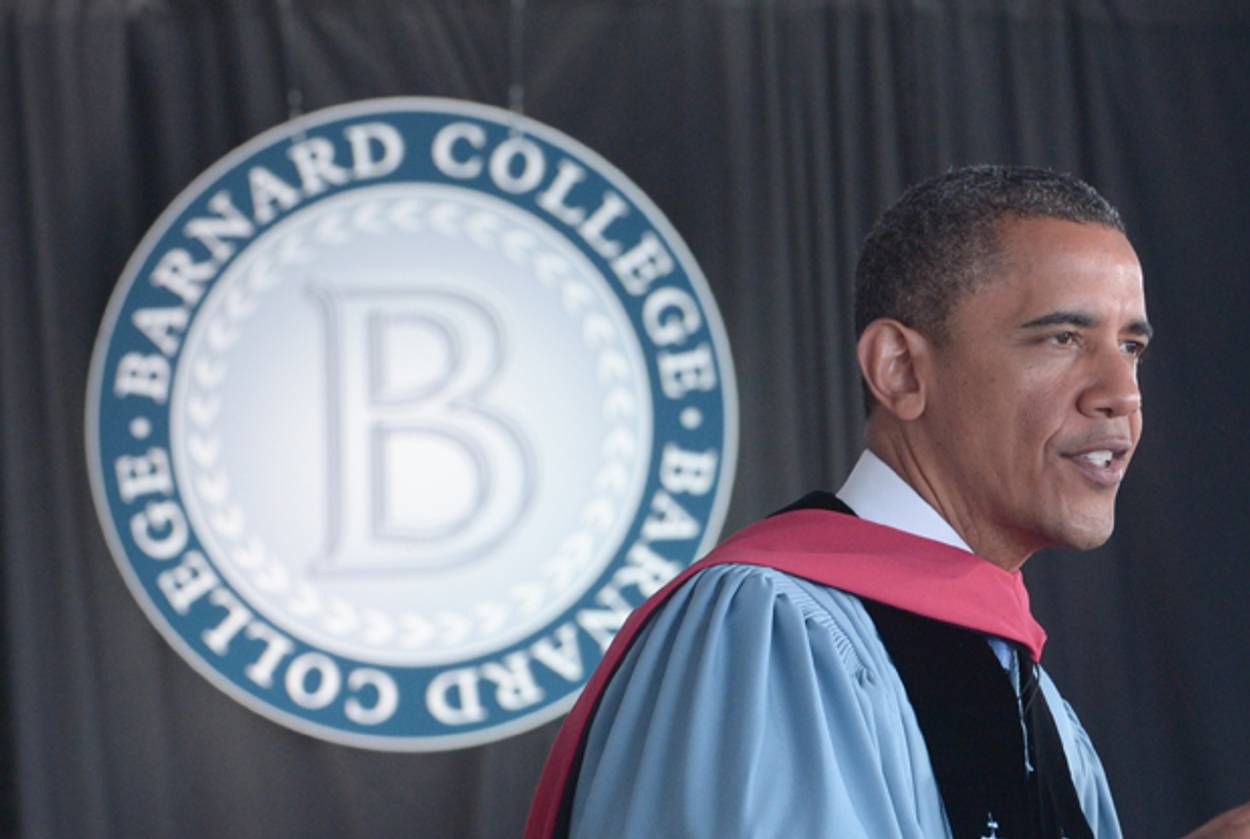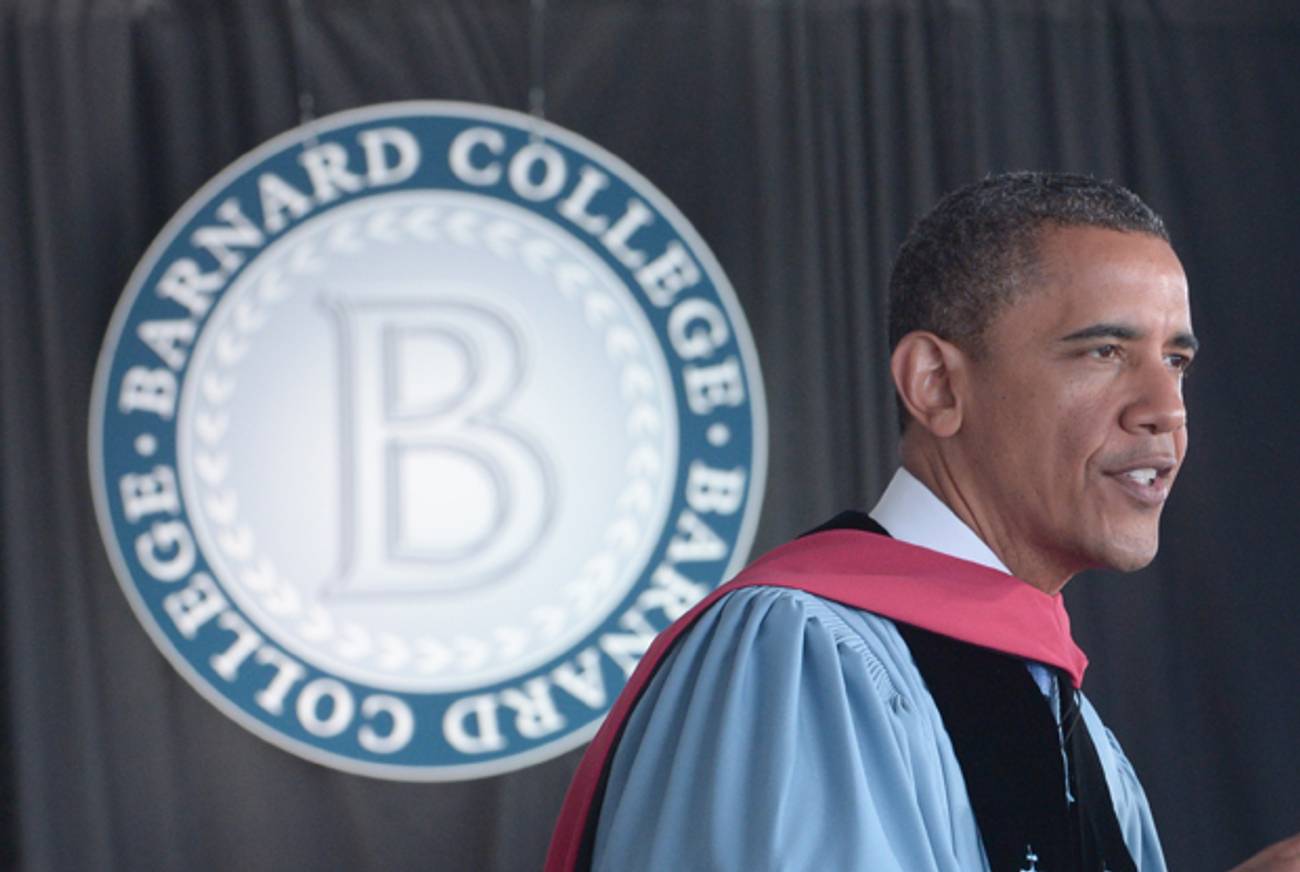Are Gay Voters the New Jewish Voters?
If GOP moves toward Dem position, constituency could be a toss-up




The election-year analysis of President Obama’s public support for gay marriage last week is that while it may do little to help him with gay voters—they were probably going to support the Democrat who lifted “Don’t Ask, Don’t Tell” over the Republican who seems iffy on gay adoption anyway—it will open the floodgates of wealthy gay donors who might otherwise have kept their wallets shut. It’s telling that the re-election campaign had planned for Obama to do this sometime before the Democratic National Convention, even had Vice President Biden not allegedly, accidentally forced its hand. (Which isn’t to imply that Obama comes by his belief dishonestly or cynically—on the contrary, it’s widely suspected that it was his prior public discomfort with gay marriage that was disingenuous.)
Conservative pundit Timothy P. Carney begins his column on this subject by citing a line Rahm Emanuel apparently quipped back in 1992: “Gays are the next Jews of fundraising.” In more words, they are disproportionately wealthy, politically engaged, and Democratic, and can be massaged on a few issues or even one issue of particular resonance to them. “In that light,” Carney argues, “Obama’s endorsement of gay marriage was at least the equivalent of recognizing Jerusalem as the capital of Israel—a symbolic and controversial action that excites a donor base.” (Indeed, in mere months Obama has moved from first Jewish president to first gay president. No word on whether he remains the first black president excepting Bill Clinton.)
Here’s the difference. Gay rights is the signal issue for most gay donors, and so the Democrats are undoubtedly their party. But if support for Israel—and specifically the throw-caution-to-the-wind, out-and-out support for Israel that would be embodied by recognizing Jerusalem as the capital of Israel (something the past three presidents have failed to do despite ostensible legislative obligation)—were the signal issue for Jewish donors, then they would be flooding to the Republicans; and yet, with a few notable exceptions (Sheldon Adelson, Irving Moskowitz, these folks), they haven’t. Despite a bipartisan consensus on Israel that, where it favors one side at all, probably favors Republicans more than Democrats (particularly among the wealthy), Jews overwhelmingly stick with Democrats.
Extrapolating from donors to voters only makes things more interesting. Four percent of the population identifies as LGBT—roughly twice the number who identify as Jews. Right now, when one party is trying to grant them more rights and the other is trying to circumscribe them, you can expect overwhelming Democratic support. Certainly you’d expect that a higher proportion of gays than Jews would vote for the Democrat, right? Well, in 2008, you would’ve been wrong: 27 percent of gays voted for Sen. John McCain, as opposed to 22 percent of Jews.
Maybe that number will go down this year given Obama’s announcement, but in terms of a longer trend, it implies that eventually the gay vote—at least the gay male vote—will be very much up-for-grabs. And why shouldn’t it be? Fifty, 30, or even 20 years from now, both parties will support gay rights, at least on its face, and the issue will be largely uncontroversial. (Put it this way: In 50 years, I’d bet Democrats won’t make the same charges against Republicans about gays that they do now about women.) At that point, roughly half of the gay population will be men who are disproportionately wealthy; disproportionately childless; and likely less concerned with social issues, their primary one having been resolved. And what do we call wealthy American men who care about economic policies with a limited personal commitment to public education? Usually, we call them Republicans. (I’d expect lesbians to remain a strongly Democratic group, in part because they’re women.)
Most likely, gay Americans, like practically all Americans, will vote their self-interest and evolve across parties accordingly. There will be only one bizarre outlier that will continue, as Milton Himmelfarb put it 60 years ago, to “earn like Episcopalians and vote like Puerto Ricans.”
Gay Marriage Shows How Social Issues Pay for Dems [Washington Examiner]
Marc Tracy is a staff writer at The New Republic, and was previously a staff writer at Tablet. He tweets @marcatracy.